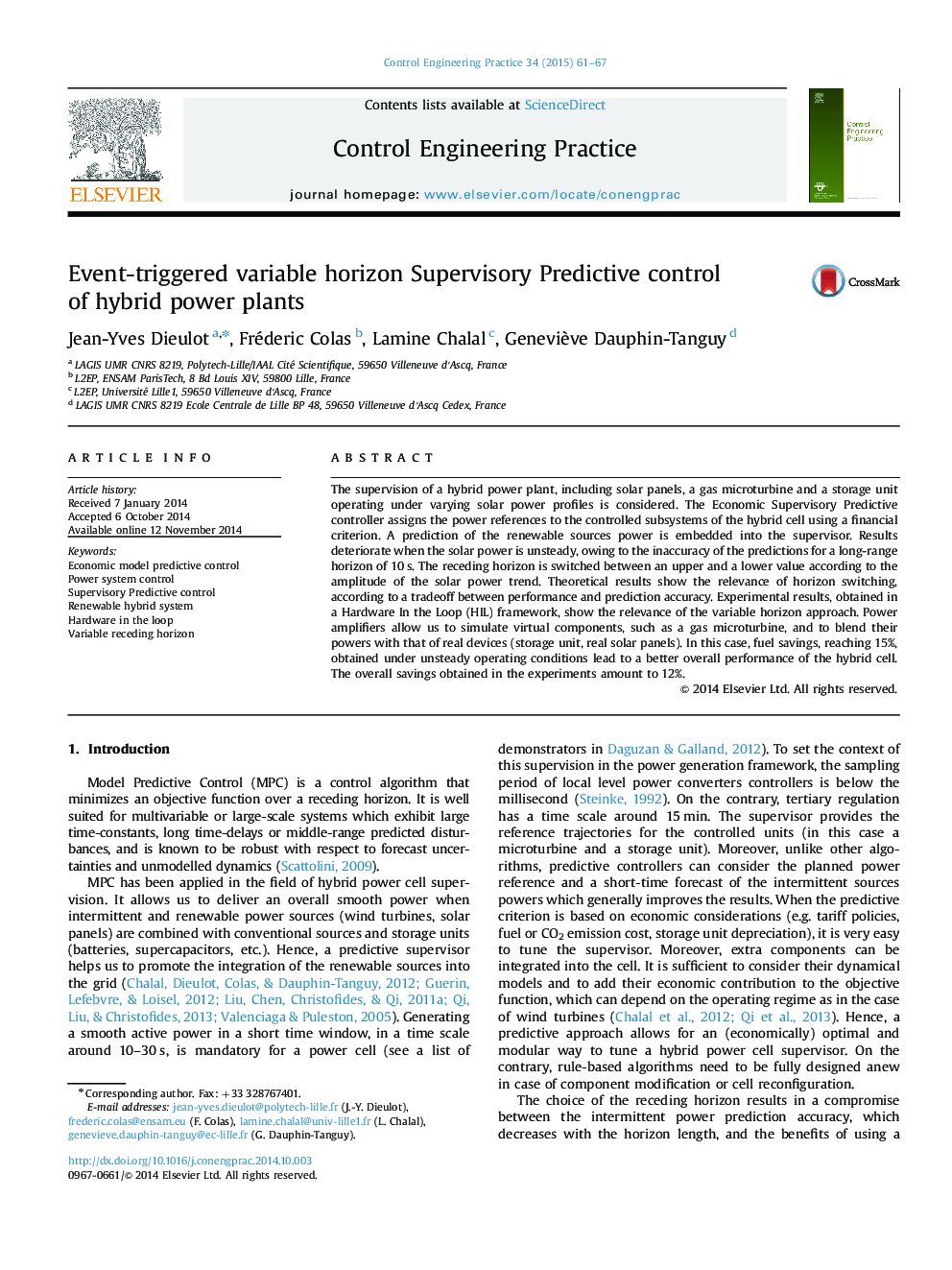| Article ID | Journal | Published Year | Pages | File Type |
|---|---|---|---|---|
| 699931 | Control Engineering Practice | 2015 | 7 Pages |
•A new Economic Supervisory Predictive controller for a hybrid power plant is designed•The techno-economic criterion appears to be in a nonstandard quadratic form.•The receding horizon is switched to a lower value when the renewable power fluctuates•A variable receding horizon strategy improves the control performances•Real-time experiments are performed in a hardware-in-the-loop framework.
The supervision of a hybrid power plant, including solar panels, a gas microturbine and a storage unit operating under varying solar power profiles is considered. The Economic Supervisory Predictive controller assigns the power references to the controlled subsystems of the hybrid cell using a financial criterion. A prediction of the renewable sources power is embedded into the supervisor. Results deteriorate when the solar power is unsteady, owing to the inaccuracy of the predictions for a long-range horizon of 10 s. The receding horizon is switched between an upper and a lower value according to the amplitude of the solar power trend. Theoretical results show the relevance of horizon switching, according to a tradeoff between performance and prediction accuracy. Experimental results, obtained in a Hardware In the Loop (HIL) framework, show the relevance of the variable horizon approach. Power amplifiers allow us to simulate virtual components, such as a gas microturbine, and to blend their powers with that of real devices (storage unit, real solar panels). In this case, fuel savings, reaching 15%, obtained under unsteady operating conditions lead to a better overall performance of the hybrid cell. The overall savings obtained in the experiments amount to 12%.
